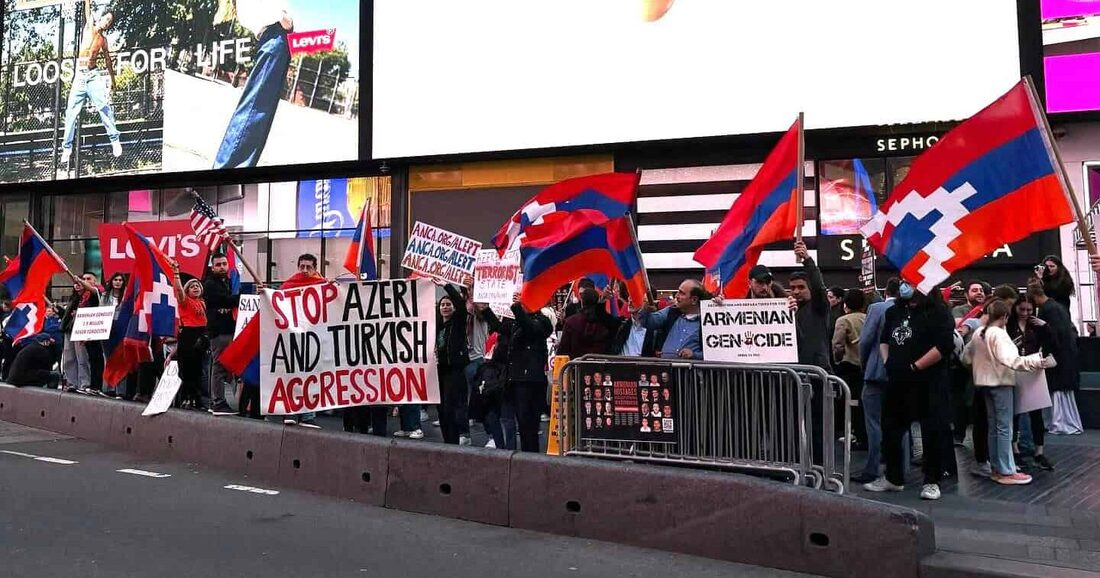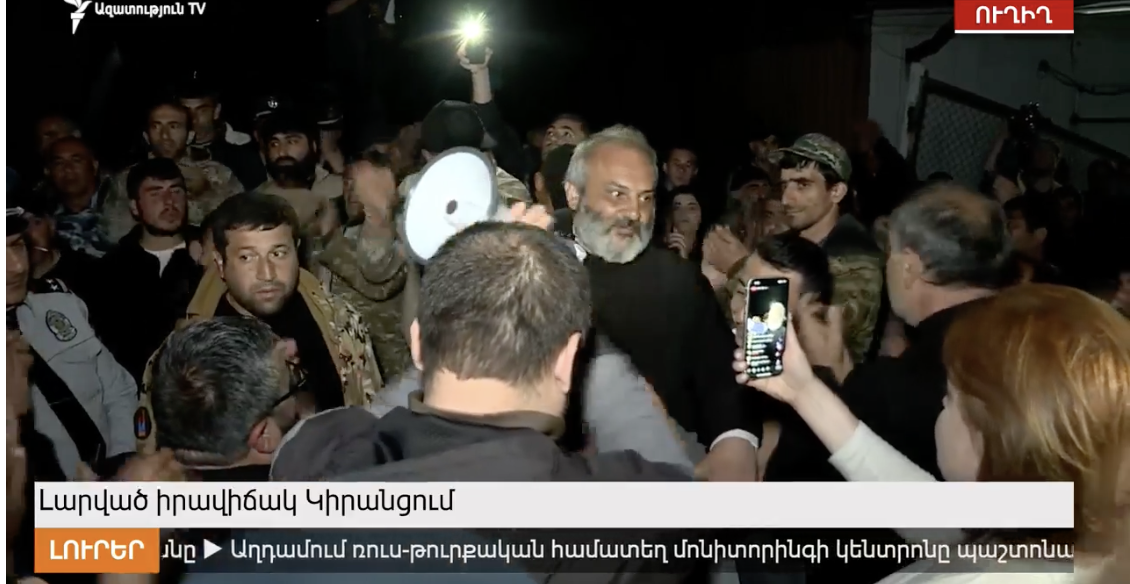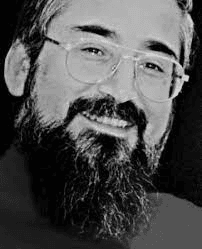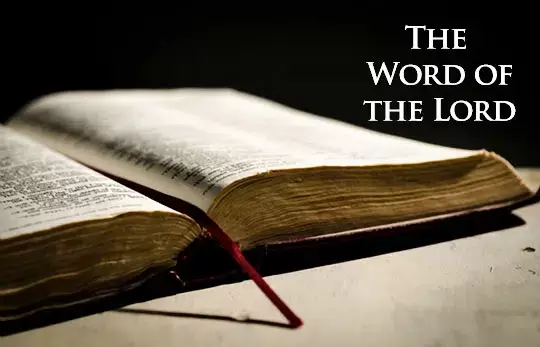Of Protests and Protests
Public gatherings and demonstrations, such as protests, candlelight vigils, and marches, have become a symbol of the Armenian Genocide Commemoration in both the Republic of Armenia and Armenian communities in the Diaspora. Many people may question the importance of such events, as the media often does not provide enough coverage, politicians do not do much beyond giving lip service, and the perpetrators of the Genocide do not accept responsibility. However, these public events, from the streets of Yerevan to Times Square and beyond, send a strong message that we have not forgotten what happened to us 109 years ago, and we demand justice and accountability for the Genocide committed against our people.
Internally, organizing and participating in these events is equally important because it strengthens our communal identity. Every young person who takes the podium to speak has done their homework and has learned about the history of what happened to their ancestors, which has now become their own history. In this age of virtual reality, AI, and social media, where young people can easily find a counterfeit sense of identity behind locked doors of their bedrooms, it is crucial to forge our communal identity through events like these, which connect us to our real world, real people and real issues.
However, there are different types of protests that are happening in different parts of Armenia. We are continuing to watch disturbing scenes of police subduing protestors in the Republic of Armenia. The protestors are demonstrating against the decision of Armenia's Prime Minister, Mr. Pashinyan, to give away four villages in the Tavoush region to Azerbaijan. This situation is both alarming and disturbing on multiple levels. First, the freedom of speech and expression of the protesters is brutally suppressed. Second, the democratically elected prime minister is going against the will of his own people and is serving the interests of Azerbaijan and Turkey. According to The Guardian, Mr. Pashinyan urged Armenians to recognize that the way this issue (i.e. surrendering four villages) is handled will determine the viability of the future peace process with Azerbaijan. And lastly, the lack of real and credible opposition in the government of the Republic of Armenia is a matter of concern.
As a clergyman, it is not my place to be heavily involved in politics but as a concerned Armenian, it is extremely difficult to watch the degradation of Armenian nationalsim under the pretext of securing peace in the region.
In an article titled "Why Isn't Anyone Talking About the Exodus of Christians in Nagorno-Karabakh?" published in America Magazine on April 25, 2024, Kevin Clarke summarized Azeri politics by quoting President Aliev's statement that "Azerbaijan would not stand by while Armenia restores its defensive capacity... Now the Armenians appear willing to accept the loss of Nagorno-Karabakh, but maybe in five years' time, when they are supplied with deadly weapons, they will say again, 'Karabakh is Armenia,' and what should we do? We cannot wait."
Aliev's sentiments suggest two things: firstly, no concession from the Armenian side will be enough to establish peace in the region, and secondly, Aliev is well aware that the Artsakh case is not closed.
The attempts made by the Armenian Government to suppress the protestors are futile and will never succeed. As diasporan Armenians, we must continue to strengthen our Armenian National Identity, which constitutes our shared identity. It is imperative that everyone understands that no part of our homeland should be used as a bargaining tool. The Armenian Genocide is a documented historical fact, and those responsible must take full responsibility. Our collective identity as Armenians is not an outdated notion or a liability; rather, it is our moral compass, built on the values of the Armenian Church and the communal consciousness of our forefathers.
I believe that this year's Armenian Genocide commemoration carries a clear message. The feelings of despair and hopelessness that we have all experienced since the Artsakh War of 2020 and the mass exodus of Armenians from Artsakh in 2023 need to be replaced with a renewed commitment to pursuing justice and safeguarding Armenia.
The input of every Armenian is extremely important in this matter.
Internally, organizing and participating in these events is equally important because it strengthens our communal identity. Every young person who takes the podium to speak has done their homework and has learned about the history of what happened to their ancestors, which has now become their own history. In this age of virtual reality, AI, and social media, where young people can easily find a counterfeit sense of identity behind locked doors of their bedrooms, it is crucial to forge our communal identity through events like these, which connect us to our real world, real people and real issues.
However, there are different types of protests that are happening in different parts of Armenia. We are continuing to watch disturbing scenes of police subduing protestors in the Republic of Armenia. The protestors are demonstrating against the decision of Armenia's Prime Minister, Mr. Pashinyan, to give away four villages in the Tavoush region to Azerbaijan. This situation is both alarming and disturbing on multiple levels. First, the freedom of speech and expression of the protesters is brutally suppressed. Second, the democratically elected prime minister is going against the will of his own people and is serving the interests of Azerbaijan and Turkey. According to The Guardian, Mr. Pashinyan urged Armenians to recognize that the way this issue (i.e. surrendering four villages) is handled will determine the viability of the future peace process with Azerbaijan. And lastly, the lack of real and credible opposition in the government of the Republic of Armenia is a matter of concern.
As a clergyman, it is not my place to be heavily involved in politics but as a concerned Armenian, it is extremely difficult to watch the degradation of Armenian nationalsim under the pretext of securing peace in the region.
In an article titled "Why Isn't Anyone Talking About the Exodus of Christians in Nagorno-Karabakh?" published in America Magazine on April 25, 2024, Kevin Clarke summarized Azeri politics by quoting President Aliev's statement that "Azerbaijan would not stand by while Armenia restores its defensive capacity... Now the Armenians appear willing to accept the loss of Nagorno-Karabakh, but maybe in five years' time, when they are supplied with deadly weapons, they will say again, 'Karabakh is Armenia,' and what should we do? We cannot wait."
Aliev's sentiments suggest two things: firstly, no concession from the Armenian side will be enough to establish peace in the region, and secondly, Aliev is well aware that the Artsakh case is not closed.
The attempts made by the Armenian Government to suppress the protestors are futile and will never succeed. As diasporan Armenians, we must continue to strengthen our Armenian National Identity, which constitutes our shared identity. It is imperative that everyone understands that no part of our homeland should be used as a bargaining tool. The Armenian Genocide is a documented historical fact, and those responsible must take full responsibility. Our collective identity as Armenians is not an outdated notion or a liability; rather, it is our moral compass, built on the values of the Armenian Church and the communal consciousness of our forefathers.
I believe that this year's Armenian Genocide commemoration carries a clear message. The feelings of despair and hopelessness that we have all experienced since the Artsakh War of 2020 and the mass exodus of Armenians from Artsakh in 2023 need to be replaced with a renewed commitment to pursuing justice and safeguarding Armenia.
The input of every Armenian is extremely important in this matter.
Remembering My Teacher
This week marks the 20th anniversary of the passing of His Eminence Archbishop Zareh Aznavorian. He was a renowned theologian, biblical scholar, church musician, and linguist. I consider myself fortunate that I was one of his many students at the Armenian Theological Seminary. His love and passion for our church and theology influenced me greatly. Witnessing his final months of life as he fought cancer in various hospitals in New York taught me a precious lesson on how a life of faith could be lived in the midst of pain and suffering. He went home eagerly not to meet Jesus but to see Jesus.
This week marks the 20th anniversary of the passing of His Eminence Archbishop Zareh Aznavorian. He was a renowned theologian, biblical scholar, church musician, and linguist. I consider myself fortunate that I was one of his many students at the Armenian Theological Seminary. His love and passion for our church and theology influenced me greatly. Witnessing his final months of life as he fought cancer in various hospitals in New York taught me a precious lesson on how a life of faith could be lived in the midst of pain and suffering. He went home eagerly not to meet Jesus but to see Jesus.
The Word of God
The Gospel reading for this Sunday is from John 7:14-23. This Sunday we will hear to words of Jesus who says: “Anyone who resolves to do the will of God will know whether the teaching is from God or whether I am speaking on my own” (John 7:17). According to the Orthodox Study Bible, “The simple desire to know and follow God's will is the key to understanding it. Spiritual blindness comes from unwillingness to know God or to recognize His authority.” (Orthodox Study Bible Copyright © 2008 by St. Athanasius Academy of Orthodox Theology).
Come join us this Sunday at St. Sarkis Church to refresh your soul and reconnect with your identity. Our church offers something that the diner, the mall, or the sports field cannot provide.
Prayerfully,
The Gospel reading for this Sunday is from John 7:14-23. This Sunday we will hear to words of Jesus who says: “Anyone who resolves to do the will of God will know whether the teaching is from God or whether I am speaking on my own” (John 7:17). According to the Orthodox Study Bible, “The simple desire to know and follow God's will is the key to understanding it. Spiritual blindness comes from unwillingness to know God or to recognize His authority.” (Orthodox Study Bible Copyright © 2008 by St. Athanasius Academy of Orthodox Theology).
Come join us this Sunday at St. Sarkis Church to refresh your soul and reconnect with your identity. Our church offers something that the diner, the mall, or the sports field cannot provide.
Prayerfully,





